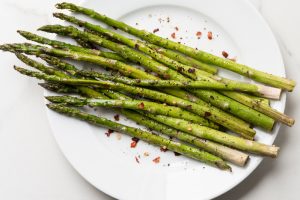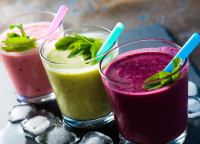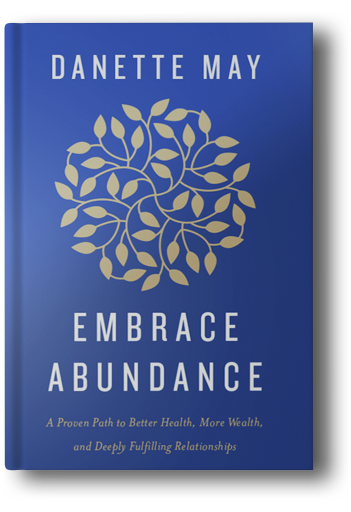You've probably heard a lot lately about collagen and bone broth and the amazing health benefits they provide. But if you're a vegetarian or vegan, you might be wondering how you can get more collagen — especially when the only food sources that provide it are animal-based.
While you may not want to add meat or other animal products back into your diet, there are things you can do to increase your collagen. But first, let's look at why collagen is important.
Why is collagen important?
Collagen is the most abundant protein found in muscles, bones, and skin. It forms your blood vessels, tendons, and digestive system. Collagen gives elasticity and strength to skin and prevents sagging of skin.
It has many vital functions in your body. Here are a few:
- Supports healthy skin and prevents wrinkles
- Promotes joint health
- Improves muscle mass
- Boosts metabolism
- Promotes hair health
- Protects the health of your heart
Sources of collagen include organ meat, eggs, beef, chicken, and fish. Food sources of collagen come only from meat and animal products.
But what if you don't eat meat or any animal products?
 If you are a vegetarian or vegan and you're wondering how to increase your collagen, no worries! The good news is, including specific plant sources can boost your collagen levels. If you provide the ideal conditions, your body makes its own! Those ideal conditions include:
If you are a vegetarian or vegan and you're wondering how to increase your collagen, no worries! The good news is, including specific plant sources can boost your collagen levels. If you provide the ideal conditions, your body makes its own! Those ideal conditions include:
1. Using plant sources to get the nutrients you need to boost collagen production
2. Get good night's sleep
3. Lower your stress levels
Consistency and proper nutrition are the key factors here.
Plant nutrients that boost collagen levels
Collagen has a whopping 19 amino acids, both essential and nonessential. The two primary amino acids in collagen are glycine and proline. They are conditional amino acids. That means, under the right conditions, your body can make its own amino acids. Plants rich in glycine and proline along with vitamin C rich foods can help build collagen.
Good sources of glycine: Cauliflower, pumpkin, spinach, cabbage, beans, banana, and kale.
 Best sources of proline: Buckwheat, asparagus, alfalfa sprouts, watercress, cabbage, and broccoli.
Best sources of proline: Buckwheat, asparagus, alfalfa sprouts, watercress, cabbage, and broccoli.
Top sources of vitamin C: Brussel sprouts, kale, red bell pepper, and broccoli. Also fruits like strawberries, grapefruit, citrus fruits, papaya, and orange.
Also, specific nutrients like copper, flavonoids, zinc, vitamin A, and manganese can also help.
Best sources of copper: Lentils, sunflower seeds, apricots, dark chocolate, blackstrap molasses, and mushrooms.
Strong sources for flavonoids: raspberries, strawberries, blueberries, blackberries, and cherries.
Best sources of zinc: Zinc is vital to make collagen. Most seeds, nuts, and beans are rich in zinc.
Good sources of vitamin A: Vitamin A is important for skin health as well as collagen formation. Most orange colored vegetables like carrot, squash, persimmon, and pumpkin are rich in carotenoids. They're potent antioxidants that protect collagen as well as provide vitamin A.
Best sources of manganese: Dark leafy greens, nuts, seaweed, and pineapples are good sources. Manganese boosts proline formation. Proline is crucial for making collagen.
Be sure to make your plate a colorful one with plenty of nutrient-rich plant foods. It will not only help make collagen but also protect your current collagen levels.
TweetAnd don't forget that stress relief and sleep are just as important!
What other ways can you boost collagen levels?
- Consume less processed food and refine sugar
 Stop smoking
Stop smoking- Avoid too much sun exposure
- Adopt a healthy diet and regular exercise regimen
Keep in mind, collagen production drops as we age. Yet, you can keep up your collagen levels with a healthy diet and lifestyle. And with all of these plant-based ways you can boost your body's own collagen production, vegetarians and vegans can reap the health benefits of this vital protein, too!
You might also like:
2 Tablespoons of This Plant Food Has More Protein Than An Ounce Of Beef
Hearty Quinoa and White Bean Chili
3 Lessons You Can Learn from the Healthiest Cities on Earth
Yours in health and happiness,
Danette
P.S. Please share this with a vegetarian or vegan friend who might not know about how they can boost their collagen levels! Comment below…are you a vegetarian wondering how to get more collagen without adding bone broth into your diet?







